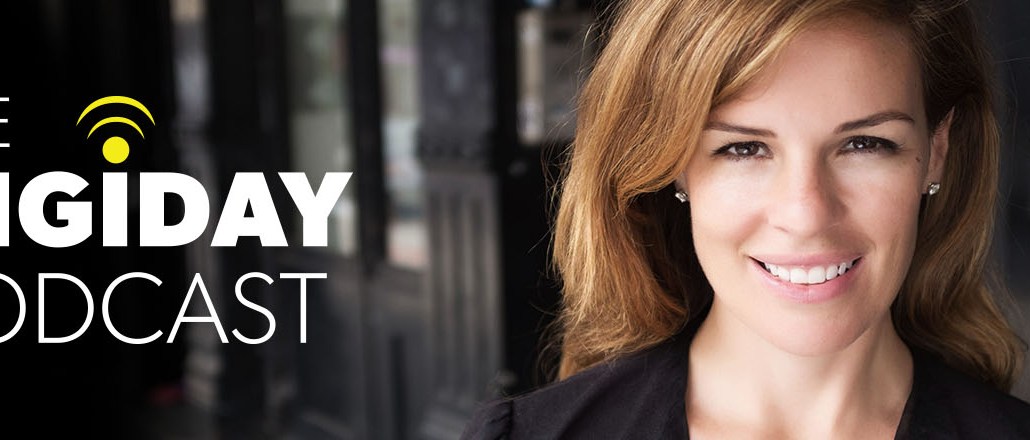Connect with execs from The New York Times, TIME, Dotdash Meredith and many more
Barstool Sports CEO Erika Nardini: ‘I don’t think you survive on an ad model’

Subscribe: iTunes | Stitcher | RSS
Barstool Sports, to put it mildly, is not for everyone. Its content veers decidedly in the frat-house direction, features a section called “Girls” devoted to scantily clad women, venerates all things Boston and holds that anything and everything can be a source of amusement. It is also a media brand with something more valuable than ever: loyalty.
Barstool’s audience is small by today’s standards — under 10 million visitors a month — but it has a legion of fans that self-identify as “Stoolies.” It was “a phenomenon,” media veteran and Barstool CEO Erika Nardini said on this week’s Digiday Podcast.
“It’s a brand that many men — and some women, too — really self-identify with,” she said. “At its core, Barstool is an opinion-driven, unfiltered brand that connects with young men in particular about the topics they care about, the things they’re watching.”
Below are highlights from the episode, lightly edited for clarity.
Independent sites can’t rely mostly on advertising
“Advertising will be about 50 percent of our revenue, maybe less. It’s a great thing. Merchandise is a third of our business. I like that mix. When I was looking at Barstool, the diversification of the revenue model was one of the most attractive things to me. There’s a question in media about independent publishers and small publishers and how they survive. I don’t think you survive in this day and age on an ad model.”
Major media companies don’t have much audience connection
“If you look at major media companies and what the interaction is on the consumer level, it’s not there. If you don’t have a consumer actively looking for your content and engaging with it, it’s very difficult to build ancillary business models.”
There’s big potential in media brands that are meaningful
“There are very few brands that people converse in and people badge themselves by. I’ve spent a long time in media, and I’ve never seen a brand like this that has so much potential but is so raw.”
Barstool’s TV foray last week shows it has potential beyond the Web
“We showed that with zero marketing, using our own talent, with our first go at television, we will come in the top three or four late-night shows. It shows you the power of an install base, the power of being able to produce quickly, and the power for this brand that for the last 10-plus years has an audience that’s deeply loyal and will show up for us.”
Barstool’s risque content is not everyone’s cup of tea
“No one and nothing is safe. There’s nothing these guys can’t find funny. Historically, Barstool was known as a sports blog. In reality, it’s a comedy site. There’s no race they won’t make a joke out of, no religion and no political structure. There’s no strategy to go up against PC culture. It’s a non-PC group of people who are tired of packaging, vapid content. Say what you want about Barstool, it’s not for everyone, but it’s true, authentic and trying to find the humor in things people won’t touch. They say things people think but won’t say.”
More in Media

Retail media meets publishing: News UK, Future and Ocado tap clean room tech for smarter data targeting
News UK, The Independent, Immediate Media and Future are teaming up with retail media network Ocado to test clean room-powered data matching.

From sidelines to spotlight: Esports events are putting creators center stage
Esports events’ embrace of content creators reflects advertisers’ changing priorities across both gaming and the wider culture. In the past, marketers viewed esports as one of the best ways to reach gamers. In 2025, brands are instead prioritizing creators in their outreach to audiences across demographics and interest areas, including gaming.

Condé Nast and Hearst strike Amazon AI licensing deals for Rufus
Condé Nast and Hearst have joined the New York Times in signing a licensing deal with Amazon for its AI-powered shopping assistant Rufus.








